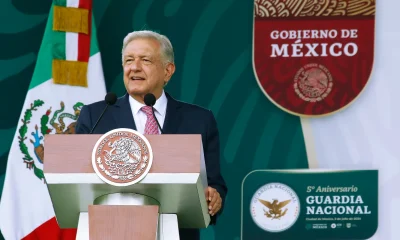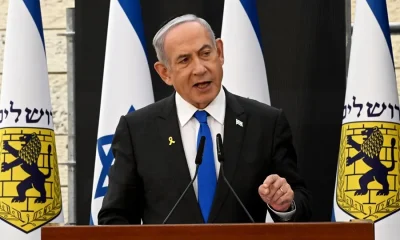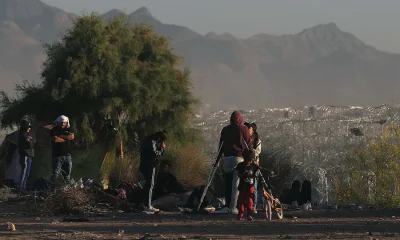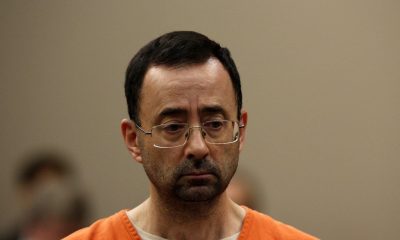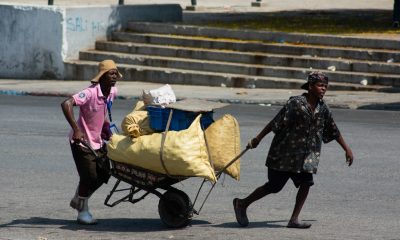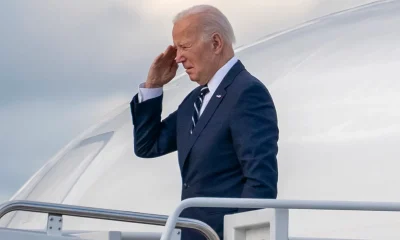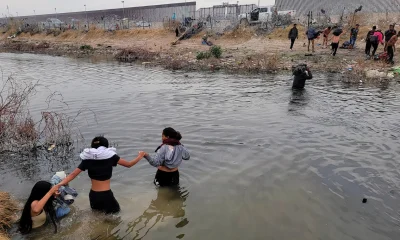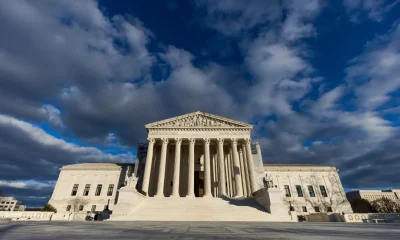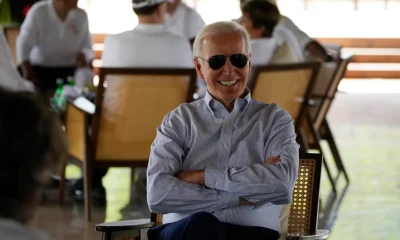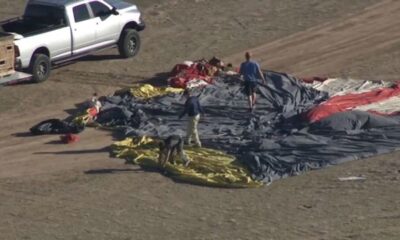International
The pro-Palestinian student movement in the United States looks at itself in history to continue
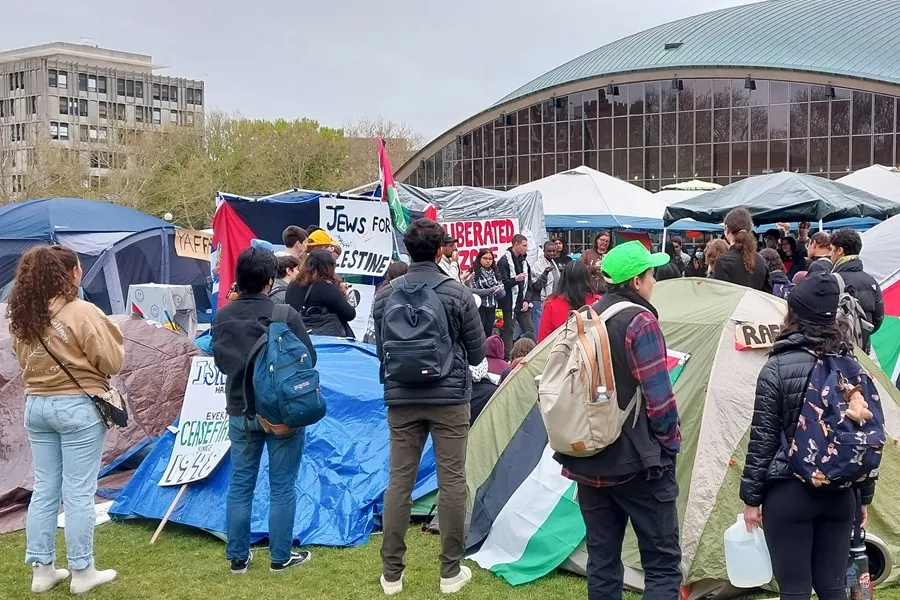
Opposition to the war in Gaza has triggered a student movement in the United States not seen since the protests against apartheid in South Africa in the 1980s and in rejection of the Vietnam War in the 60s, although the difference is the strong police reaction to more peaceful rallies.
The one that has already been called by historians such as Robert Cohen, of New York University, as the largest university movement in the United States in the 21st century has parallels with the uprisings of the past, but is also unique in forcing Washington to “be more careful with what it does with its military help.”
For Juan González, who was one of the leaders of the 1968 protests at Columbia University (New York), today’s demonstrations are much more peaceful but are facing more immediate repression.
“Never in the history of student protests has a protest been suppressed for so little violation of the law,” said Cohen, an expert in social movements, in a recent interview.
“Basically they are setting up camps in public spaces, they are not interfering with classes (…) we took several buildings in a single day,” he said in an interview with EFE González, 76, who considers that the police response is being much more severe on this occasion, with eviction of peaceful camps and more than 2,000 arrested.
Authorities from both New York City in the United States and the university were willing to negotiate with González and the other student leaders, he explained, something that has only happened in a handful of educational centers during the current movement.
In educational centers such as the University of California in Los Angeles (UCLA), the University of Texas in Austin or the University of South Florida in Tampa in the United States, state and local law enforcement agencies have entered to evict the camps and forcibly expel the students shortly after they congregated with the approval of the university authorities.
Another of the main differences is the historical context: the student protests of 1968 against the Vietnam War were included in a much larger movement that transcended the campuses and that included other causes such as the rejection of racial discrimination.
“Our strike in Columbia began only a couple of weeks after Martin Luther King was killed (…) there were riots and riots in more than 100 cities across the country,” explained González, who recalls that the worst moment of police repression was when in 1970 the Ohio National Guard killed four students at Kent State University.
The students’ requests, however, have similarities. Currently, university students ask educational centers to cut all kinds of ties with Israel and its military industry, while in 1968 they asked the institution to cut ties with the IDA, a center that was investigating weapons to be used in Vietnam.
The protests of now are also loaded with an “internationalist perspective” something that for the historian of the Massachusetts Institute of Technology (MIT) Tanalís Padilla did not happen years ago in the United States.
“Within the empire, the country’s actions are rarely taken aware of,” Padilla said of these protests against injustices that are happening “in another part of the world.”
The author of “After Zapata” indicated that this student movement has similarities with the fight against the Vietnam war in the 70s and the civil rights claims in the 60s, but contrary to the first case, “U.S. soldiers are not dying” and, in the second, there was no internationalist vision and solidarity with the suffering of the people of Palestine.
“It is a movement of international solidarity that has not been seen in a long time, which gives hope and it is very important that it happens in the most powerful country in the world,” said the teacher, a Jewish descendant of victims of the Holocaust and who has participated in the MIT student camp.
International
Epstein Denies Being ‘the Devil’ in Newly Released Video Interview
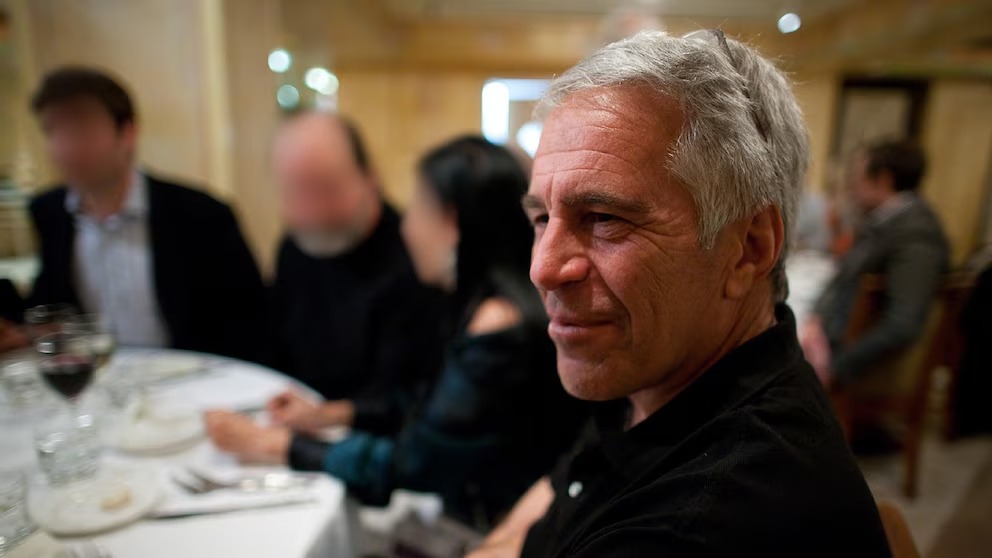
Jeffrey Epstein claims he was the least dangerous type of sex offender and denied being “the devil” in a video interview included in the latest batch of documents released over the weekend by the U.S. Department of Justice.
The roughly two-hour interview was conducted by Steve Bannon, a former adviser to U.S. President Donald Trump, and appears to have been recorded at the late financier’s New York residence on an unknown date.
Epstein died by suicide in 2019 while in jail awaiting trial on sex trafficking charges involving minors. Since December, the U.S. government has released millions of documents related to the case under transparency laws.
“Do you think you’re the devil incarnate?” Bannon asks Epstein in the video interview revealed in the latest release.
“No, but I do have a good mirror,” Epstein replies with a smile, wearing a black shirt and glasses. When pressed again, he adds, “I don’t know. Why would you say that?”
Epstein, who pleaded guilty in 2008 to soliciting a minor for prostitution, also appears to downplay the seriousness of his conviction.
He objects when Bannon refers to him as a “Level Three sexual predator,” a classification in the United States indicating a very serious threat to public safety.
“No, I’m the lowest,” Epstein says.
“But still an offender,” Bannon responds.
“Yes,” Epstein replies.
The exchange comes after Bannon asks Epstein whether he considers his wealth to be “dirty,” suggesting it was earned by advising “the worst people in the world.”
Epstein insists that he made his money legally, while acknowledging that “ethics is always a complicated issue.”
He claims he donated money to help eradicate polio in Pakistan and India, apparently in an attempt to justify the origins of his fortune.
The documents also show that Bannon maintained regular correspondence with Epstein, who offered to help the far-right political figure spread his conservative ideology in Europe.
Since Trump took office in January 2025, U.S. authorities have released millions of pages related to Epstein, along with photos and videos.
These materials have shed new light on Epstein’s ties to high-profile business executives such as Microsoft co-founder Bill Gates, celebrities including filmmaker Woody Allen, and academics and political figures, among them Trump and former President Bill Clinton.
International
Hypothermia Linked to Most Deaths During New York’s Recent Cold Spell
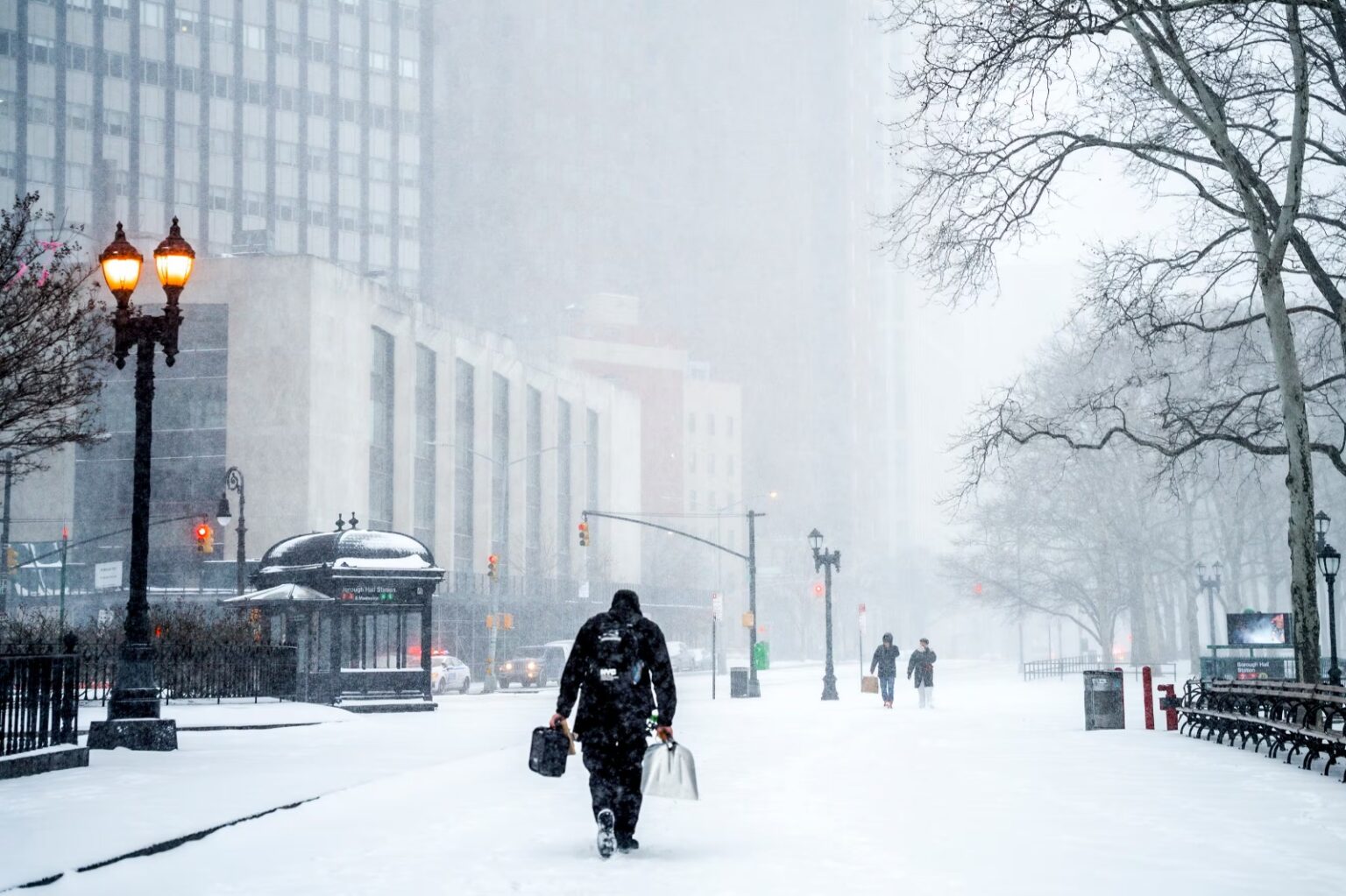
Hypothermia “played a role” in 13 of the 16 deaths recorded in New York City during the recent period of extreme cold, Mayor Mandami said at a press conference. Three of the deaths were classified as drug overdoses.
None of the individuals were sleeping on the streets at the time of their deaths, the mayor added, noting that some had previously been in contact with emergency shelter services.
Mandami said the city has activated emergency warming centers and deployed a fleet of 20 vehicles staffed with medical personnel to respond to the cold weather crisis.
“As of this morning, we have made more than 930 referrals to shelters and safe facilities. We have also involuntarily transported 18 New Yorkers who were deemed a danger to themselves or others,” he said.
According to official statistics, New York City recorded between nine and 27 cold-related deaths per year from 2005 to 2021. That number rose to 34 in 2021 and climbed further to 54 in 2022.
City Comptroller Mark Levine estimated that there are “tens of thousands” of homeless New Yorkers, “most of them families with children.”
He said that “nearly 95%” of the city’s homeless population lives in municipal shelters.
In August 2021, those shelters housed 44,586 people, the “lowest daily population in nearly a decade,” according to official data.
However, the shelter population increased from 22,955 to 62,679 people between January 2000 and January 2020, highlighting the long-term growth of homelessness in the city.
International
NFL Investigating Emails Linking Giants Executive to Jeffrey Epstein
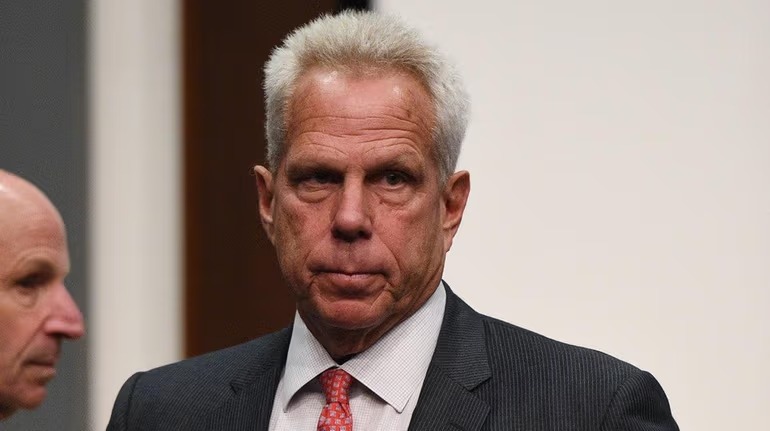
NFL Commissioner Roger Goodell said on Monday that the league will “examine all the facts” regarding contacts between New York Giants co-owner Steve Tisch and Jeffrey Epstein, revealed in documents recently released about the late convicted sex offender.
The batch of files, made public on Friday by the U.S. Department of Justice, includes emails suggesting that Epstein introduced several women to Tisch.
Tisch, a film producer who has never been charged in connection with Epstein, issued a statement last week denying any wrongdoing.
“I had a brief relationship in which we exchanged emails about adult women, and we also discussed film, philanthropy, and investments,” Tisch said of his correspondence with Epstein, which dates back to 2013.
“I did not accept any of his invitations and never went to his island. As we all now know, he was a terrible person and someone I deeply regret having associated with,” he added.
Speaking at a press conference in San Jose, California, on Monday, Goodell said the NFL would carefully review the details of the ties between Tisch and Epstein.
“We’re going to examine all the facts,” the commissioner said. “We’re going to look at the context of those exchanges, try to understand them, and see how that fits within the league’s policies.”
Tisch, 76, could face disciplinary action under the NFL’s strict personal conduct policy, even if he is not found guilty of a crime.
“We’re going to take this step by step. First, let’s gather all the facts,” Goodell said at the press conference, which was part of the events leading up to Sunday’s Super Bowl between the Seattle Seahawks and the New England Patriots.
-

 Central America4 days ago
Central America4 days agoPanama Supreme Court Strikes Down Panama Ports Concession as Unconstitutional
-

 Central America4 days ago
Central America4 days agoU.S. and Guatemala Sign Trade Deal Granting Zero Tariffs to Most Exports
-

 International8 hours ago
International8 hours agoSpain Seeks to Ban Social Media Access for Children Under 16
-

 International8 hours ago
International8 hours agoMexico to Send Humanitarian Aid to Cuba Amid U.S. Threats Over Oil Shipments
-

 International8 hours ago
International8 hours agoHypothermia Linked to Most Deaths During New York’s Recent Cold Spell
-

 Central America2 days ago
Central America2 days agoCosta Rica Goes to the Polls as Voters Choose Continuity or Change
-

 International8 hours ago
International8 hours agoPetro Resumes Extraditions, Sends Top Criminal to U.S. Before White House Talks
-

 International8 hours ago
International8 hours agoEpstein Denies Being ‘the Devil’ in Newly Released Video Interview
-

 International8 hours ago
International8 hours agoMexico Arrests Suspect in Shooting of Sinaloa Lawmakers
-

 Central America8 hours ago
Central America8 hours agoLaura Fernández Says She Will ‘Never’ Allow Authoritarianism in Costa Rica
-

 International8 hours ago
International8 hours agoNFL Investigating Emails Linking Giants Executive to Jeffrey Epstein

























